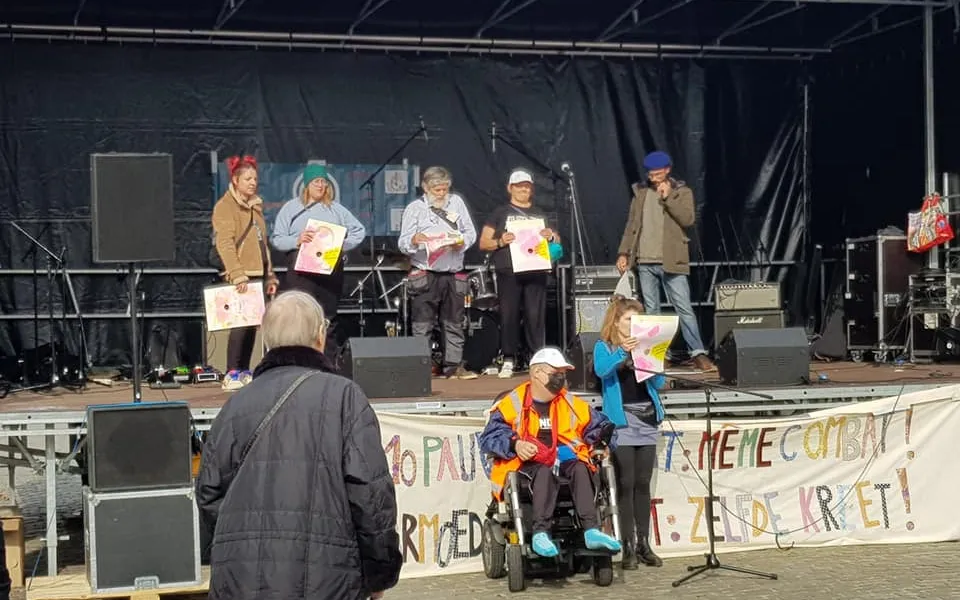
The crisis is clearly showing us that an adequate and sustainable social protection system is needed in Europe.
On the eve of 17 October, International Day against poverty and social exclusion, it’s crucial to examine how the Covid-19 pandemic has impacted the lives of people experiencing poverty.
The impact and the accommodation required to overcome the disastrous effect of the pandemic are very unequal, and several challenges need to be addressed urgently.
People experiencing poverty raised their voices about how this health crisis has deepened existing systemic and structural inequalities while individuals normally in stable financial situations also found themselves in a vulnerable position. Due to the increase in precarious employment, job losses, and/or unstable incomes, many households that used to be managing, experienced a need to rely on social and welfare benefits.
The crisis is clearly showing us that an adequate and sustainable social protection system is needed in Europe.
There is further risk of over-indebtedness of households if the welfare state is not strengthened. The general increase in poverty, low-income jobs and unemployment creates a vicious circle for people living in poverty or vulnerable situations. Any drastic interruption of the measures governments took to address the impact of the COVID-19 crisis – e.g. elimination of income protection measures, debt moratoriums and ban on evictions - are undermining the ability of vulnerable households to face their debts.
One example of the erosion of the welfare state is the current dramatic increase of energy prices. People living in poverty and in poorly isolated houses become unable to afford to heat or cool their living space or to pay electricity bills. The lockdowns increased the risk of over-consumption and forced people to make unacceptable choices between rent, electricity, gas, and food, in the turmoil of the pandemic.
This survival mode, to cope with the pandemic’s multi-dimensional effects, has led people in poverty or at-risk of poverty to develop or worsen their mental health hardships - due to isolation and the lack of social support systems. This illustrates the lack of access to healthcare as being a universal right, also to the sufficient psychological and mental support people need.
Government policies are mainly aimed at poverty reduction, but they overlook policy-making on the eradication of poverty itself. People experiencing poverty and civil society organisations need to be included in the policy decision-making process in efforts to eradicate poverty, and not only reduce it, but also address the gap in needs met of those experiencing it. Mainstreaming distributional impact assessment in all policies would also help to prevent further increase of socio-economic inequalities.
Poverty is a violation of human rights driven by inequality. It prevents those trapped in it to fully reach their potential whilst blocking them from participating in society. Poverty is a political choice; a choice to let the most vulnerable people bear the price of a profoundly broken economic model.
Although we welcome the EU action on the European Pillar of Social Rights, we urge for a commitment to a decent income and access to affordable quality essential services. The green transition must be fair and inclusive to avoid a disproportionate impact on low-income households and people at risk of poverty, and ensure the right to energy for all.
A final challenge is the digital divide. This gap is having an impact on equal access to services, particularly socio-economic benefits on which people living in poverty depend. Overall, the digital divide led to the increased social exclusion of children, individuals living in areas that lack necessary infrastructure and the elderly. The digitalisation of the economy should be followed by the digitalisation of society, in order to ensure equal access to services and civil rights.
On the 17th of October, we urge our political leaders to address these challenges: Ending poverty means to redirect focus on just and fair policies. It’s a political choice, and the only option to be able to ‘Build Back Better’.



Add new comment